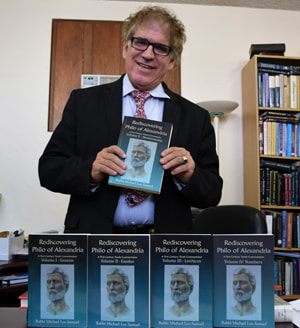Rabbi Michael Leo SamuelCHULA VISTA, California — After World War II, the Geneva Convention defined genocide as acts committed with the intent to destroy, in whole or in part, a national, ethnic, racial, or religious group. In the context of Israel and Gaza, accusations have been made against Israel by some international entities. For example, South Africa has attempted to make a case in the International Court against Israel, accusing it of committing genocide against the Palestinian people in Gaza. However, it’s important to note that warfare, particularly urban warfare, inherently involves complexities and high risks of civilian casualties.
Conventional warfare typically sees a 3:1 civilian-to-combatant death ratio, but this ratio escalates in urban warfare due to the dense population and the difficulty in distinguishing combatants from civilians. The typical ratio in such scenarios is approximately 9:1, meaning nine civilian deaths for every combatant killed. Yet, Colonel Richard Kemp, former commander of the British forces in Afghanistan, praised the Israel Defense Forces (IDF) for their efforts to minimize civilian casualties in Gaza. Reports indicate that the IDF achieved a 2:1 civilian-to-combatant casualty ratio, significantly lower than the average, suggesting a more controlled use of force and a focus on minimizing collateral damage.
There are many reasons for this 2-1 ratio. Since the beginning of the war, the IDF has taken various measures to avoid harming civilian lives. Among other things, the IDF sends messages and leaflets to the residents of Gaza instructing them to evacuate specific areas that are a target for terrorist activity and directs them to evacuate in relevant directions.
The new, interactive map divides Gaza into numbered sections based on recognizable neighborhoods to allow the IDF to issue more specific instructions to civilians, including evacuation orders, if required, from only specific places instead of from broader areas.
Arguably, this achievement, however, does not negate the tragedy of civilian casualties, each of which is a significant loss. It’s crucial to critically examine the accuracy of these figures and the context of the specific military operations for a complete understanding.
One might have thought President Biden and Secretary of State Blinken would have been impressed with these figures. Yet, speaking to reporters as his top national security adviser visited Israel on Thursday, US President Joe Biden urged Israel to take greater care to protect civilians.
The President’s reaction is shocking, but it is not without precedent.
In the acclaimed film Amadeus, a memorable scene unfolds where Mozart presents a magnificent musical composition in honor of Emperor Joseph II. Upon hearing the piece, the Emperor, somewhat bemused, remarks to Mozart, “Too many notes, dear Mozart, too many notes.” Unfazed, Mozart confidently responds, “Just as many as necessary, Your Majesty.” He then inquires, “Which few did you have in mind, Majesty?” leaving the Emperor at a loss for a specific answer. This exchange in the movie beautifully encapsulates a scenario where expertise and creativity clash with a lack of understanding or appreciation.
This scene from Amadeus can be metaphorically related to the current geopolitical situation involving President Biden and Secretary of State Blinken. Just as Emperor Joseph II struggled to pinpoint which notes were superfluous in Mozart’s composition, Biden and Blinken find themselves in a similar predicament, lacking clarity or specifics when addressing complex international conflicts, particularly the nuanced and multifaceted nature of the ongoing conflict between Israel and Hamas.
To analyze this situation through a rabbinical lens, one might ask, “How is this war different from all other wars Israel has had in the past?”
This question invites a deeper examination of the unique characteristics of the current conflict, distinguishing it from previous engagements. Unlike past wars, the current conflict is markedly defined by Hamas’s strategic use of an extensive network of tunnels. This sophisticated tunnel system, intricately woven into the fabric of civilian life in Gaza, presents unprecedented tactical and ethical challenges. The tunnels are not only used for military purposes but have become a crucial part of Hamas’s political strategy, intricately linking military actions with the civilian population and leveraging the laws of war to their advantage.
For the first time in the history of tunnel warfare, however, Hamas has built a tunnel network to gain not just a military advantage, but a political advantage, as well, according to the military scholar John Spencer. Its underground world serves all of the military functions described above, but also an entirely different one. Hamas weaved its vast tunnel networks into the society on the surface. Destroying the tunnels is virtually impossible without adversely impacting the population living in Gaza. Consequently, they put the modern laws of war at the center of the conflict’s conduct. These laws restrict the use of military force and methods or tactics that a military can use against protected populations and sites such as hospitals, churches, schools, and United Nations facilities.
Almost all of Hamas’s tunnels are built into civilian and protected sites in densely populated urban areas. Much of the infrastructure providing access to the tunnels is in protected sites. This complicates discriminating between military targets and civilian locations—if not rendering it entirely impossible—because Hamas does not have military sites separate from civilian sites.
Hamas’s strategy is also not to hold terrain or defeat an attacking force. Its strategy is about time. It is about creating time to mount international pressure on Israel to stop its military operation.
Hamas is globally known for using human shields, which is the practice of using civilians to restrict the attacker in a military operation. The group wants as many civilians as possible to be harmed by Israeli military action—as one of its officials put it, “We are proud to sacrifice martyrs.” It wants the world’s attention on the question of whether the IDF campaign is violating the laws of war in attacking Hamas tunnels that are tightly connected to civilian and protected sites. It wants to buy as much time as is needed to cause the international community to stop Israel. Its entire strategy is built on tunnels.
Spencer concludes that the tactical challenges Hamas tunnels present to Israel are thereby compounded by strategic challenges. To deal with tunnels at the tactical level, Israel has demonstrated some of the world’s most advanced units, methods, and capabilities to find, exploit, and destroy tunnels. From specialized engineer capabilities and canine units to the use of robots, flooding to clear tunnels, and both aerial-delivered and ground-emplaced explosives, to include liquid explosives, to destroy them. Arguably, no military in the world is as well prepared for subterranean tactical challenges as the IDF. But the strategic challenge is entirely different. To destroy many of the deep-buried tunnels, the IDF has required bunker-busting bombs, which Israel is criticized for using. And most importantly it has required time to find and destroy the tunnels in a conflict in which Hamas’s strategy is aimed at limiting the time available to Israel to conduct its campaign.
Hamas’s strategy, then, is founded on tunnels and time. This war, more so than any other, is about the underground and not the surface. It is time based rather than terrain or enemy based. Hamas is in the tunnels. Its leaders and weapons are in the tunnels. The Israeli hostages are in the tunnels. And Hamas’s strategy is founded on its conviction that, for Israel, the critical resource of time will run out in the tunnels.
*
Rabbi Michael Leo Samuel is spiritual leader of Temple Beth Shalom in Chula Vista. He may be contacted via [email protected]


 RSS Feed
RSS Feed
